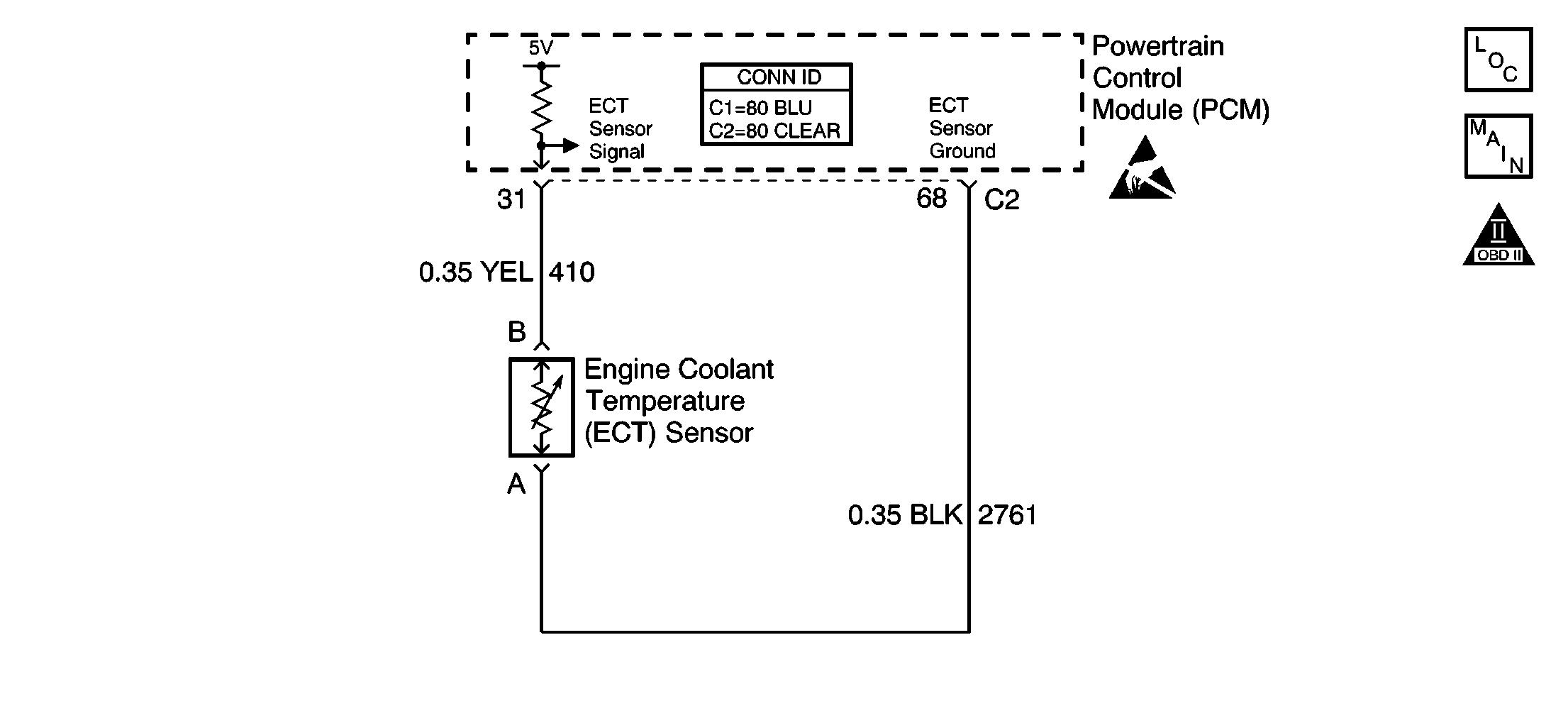
Circuit Description
The engine coolant temperature (ECT) sensor is a thermistor, or variable resistor, that measures the temperature of the engine coolant. The PCM supplies 5 volts to the ECT signal circuit through a pull-up resistor. When the engine coolant temperature is cold, the sensor resistance is high. When the engine coolant temperature increases, the sensor resistance lowers. With high sensor resistance, the PCM detects a high voltage on the ECT signal circuit. With lower sensor resistance, the PCM detects a lower voltage on the ECT signal circuit. If the PCM detects an intermittently high ECT signal voltage (a low temperature indication), DTC P1115 will set.
Conditions for Running the DTC
| • | IAT sensor DTCs are not set. |
| • | The engine has been running for 60 seconds. |
| • | The intake air temperature is above -7°C (19°F). |
Conditions for Setting the DTC
| • | The ECT sensor signal voltage is more than 4.9 volts. This would be approximately -21°C (-7°F). |
| • | The conditions exists for less than 1 second. |
Action Taken When the DTC Sets
| • | The PCM will illuminate the malfunction indicator lamp (MIL) the first time the malfunction is detected. |
| • | The PCM will store the conditions present when the DTC set as Freeze Frame and Fail Records data. |
Conditions for Clearing the MIL/DTC
| • | The PCM will turn the MIL OFF during the third consecutive trip in which the diagnostic runs and passes. |
| • | The History DTC will clear after 40 consecutive warm-up cycles have occurred without a malfunction. |
| • | The DTC can be cleared by using the scan tool Clear DTC Information function. |
Diagnostic Aids
If the condition is intermittent, refer to Intermittent Conditions .
Step | Action | Values | Yes | No | ||||||
|---|---|---|---|---|---|---|---|---|---|---|
1 | Did you perform the Powertrain On Board Diagnostic (OBD) System Check? | -- | ||||||||
2 | Are any other DTCs also set? | -- | ||||||||
3 |
Did you find and correct the condition? | -- | ||||||||
4 |
Did you find and correct the condition? | -- | Go to Diagnostic Aids | |||||||
5 |
Does the scan tool indicate that DTC P1115 passed? | -- | System OK |
